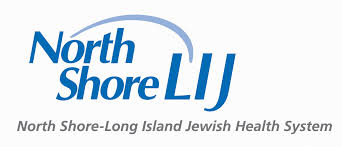Ascorbic Acid, Corticosteroids, and Thiamine in Sepsis (ACTS) Trial
| Status: | Recruiting |
|---|---|
| Conditions: | Hospital, Hospital |
| Therapuetic Areas: | Other |
| Healthy: | No |
| Age Range: | 18 - Any |
| Updated: | 8/23/2018 |
| Start Date: | February 9, 2018 |
| End Date: | September 30, 2019 |
| Contact: | Michael W. Donnino, MD |
| Email: | mdonnino@bidmc.harvard.edu |
| Phone: | 617-754-2341 |
Ascorbic Ccid, Hydrocortisone, and Thiamine in Sepsis and Septic Shock - A Randomized, Double-Blind, Placebo-Controlled Trial
In this study, we aim to determine whether the combination of Ascorbic Acid (Vitamin C),
Thiamine (Vitamin B1), and Corticosteroids improves the trajectory of organ failure and
reduces mortality in patients with sepsis and septic shock as compared to placebo.
Thiamine (Vitamin B1), and Corticosteroids improves the trajectory of organ failure and
reduces mortality in patients with sepsis and septic shock as compared to placebo.
Sepsis and Septic Shock are common and highly morbid clinical conditions without any specific
therapy aside from antibiotics. A recent quasi-experimental study (Marik et. al., PMID
27940189) demonstrated a remarkable benefit when the combination of Ascorbic Acid (Vitamin
C), Corticosteroids, and Thiamine (Vitamin B1) were given to patients with sepsis. In
particular, patients who received this combination of medications required a shorter amount
of time on vasopressors, suffered less organ failure, and had improved mortality. Vitamin C
has long been suggested for treatment of patients with severe infection as it exerts
significant anti-oxidant effects and reduces endothelial permeability. Corticosteroids, a
mainstay of therapy for refractory shock in sepsis, have also been shown to enhance the
beneficial cellular effects of vitamin C. Finally, thiamine has been shown to be an effective
mitochondrial resuscitator in sepsis, especially for the ~30% of septic shock patients who
present with thiamine deficiency (Donnino et. al, PMID 26771781).
In this study, we aim to reproduce the findings of Marik et. al. using a more rigorous study
design (i.e. a blinded, randomized clinical trial) and focus on the important clinical
outcomes of organ failure and death.
therapy aside from antibiotics. A recent quasi-experimental study (Marik et. al., PMID
27940189) demonstrated a remarkable benefit when the combination of Ascorbic Acid (Vitamin
C), Corticosteroids, and Thiamine (Vitamin B1) were given to patients with sepsis. In
particular, patients who received this combination of medications required a shorter amount
of time on vasopressors, suffered less organ failure, and had improved mortality. Vitamin C
has long been suggested for treatment of patients with severe infection as it exerts
significant anti-oxidant effects and reduces endothelial permeability. Corticosteroids, a
mainstay of therapy for refractory shock in sepsis, have also been shown to enhance the
beneficial cellular effects of vitamin C. Finally, thiamine has been shown to be an effective
mitochondrial resuscitator in sepsis, especially for the ~30% of septic shock patients who
present with thiamine deficiency (Donnino et. al, PMID 26771781).
In this study, we aim to reproduce the findings of Marik et. al. using a more rigorous study
design (i.e. a blinded, randomized clinical trial) and focus on the important clinical
outcomes of organ failure and death.
Inclusion Criteria:
1. Adult patient (age ≥ 18 years)
2. Suspected (cultures drawn and antibiotic given) or confirmed (via culture results)
infection
3. Receiving vasopressor (norepinephrine, phenylephrine, epinephrine, dopamine,
angiotensin II or vasopressin)
Exclusion Criteria:
1. Member of a protected population (pregnant, prisoner)
2. Known kidney stones within the past 1 year
3. End stage renal disease (ESRD) requiring dialysis
4. Known Glucose-6-Phosphate Dehydrogenase deficiency
5. Known Hemachromatosis
6. Comfort Measures Only status
7. Anticipated death within 24-hours despite maximal therapy (as determined by the
enrolling physician)
8. Receiving supplemental thiamine in a dose greater than that contained in a
multivitamin
9. Clinical indication for steroids (e.g. chronic use) as determined by the clinical team
providing this drug
10. Clinical indication for thiamine as determined by the clinical team providing this
drug
11. Known allergy to vitamin C, hydrocortisone, or thiamine
We found this trial at
13
sites
University of Pittsburgh Medical Center UPMC is one of the leading nonprofit health systems in...
Click here to add this to my saved trials
330 Brookline Ave
Boston, Massachusetts 02215
Boston, Massachusetts 02215
617-667-7000

Principal Investigator: Michael W Donnino, MD
Phone: 617-754-3464
Beth Israel Deaconess Medical Center Beth Israel Deaconess Medical Center (BIDMC) is one of the...
Click here to add this to my saved trials
Brigham and Women's Hosp Boston’s Brigham and Women’s Hospital (BWH) is an international leader in...
Click here to add this to my saved trials
Click here to add this to my saved trials
North Shore University Hospital North Shore-LIJ Health System includes 16 award-winning hospitals and nearly 400...
Click here to add this to my saved trials
Click here to add this to my saved trials
Click here to add this to my saved trials
Henry Ford Hospital Founded in 1915 by auto pioneer Henry Ford and now one of...
Click here to add this to my saved trials
Click here to add this to my saved trials
Click here to add this to my saved trials
Click here to add this to my saved trials
Click here to add this to my saved trials



